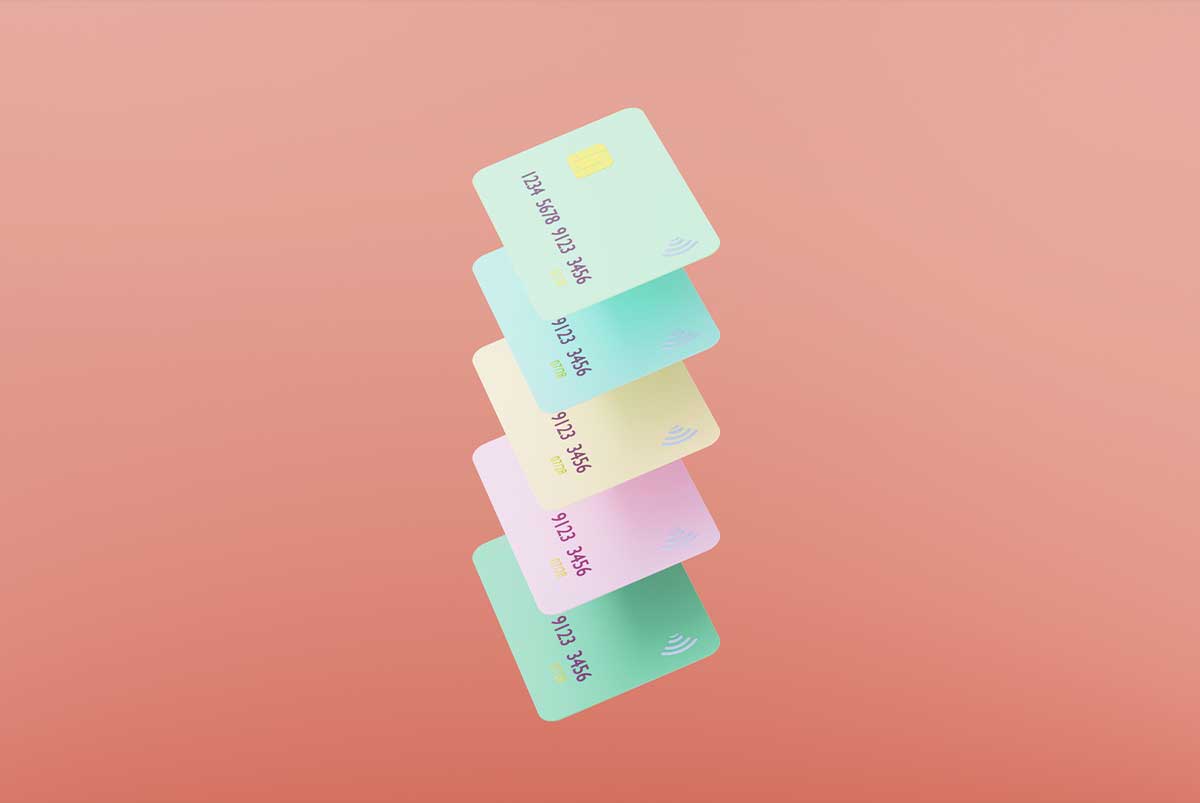Explore your mortgage options
Credit cards are great for their convenience. But that convenience can be a double-edged sword, making it all too easy to rack up debt. If you have more than one credit card, that problem can compound quickly.
Credit card debt consolidation offers a path forward for those struggling with credit card debt from multiple sources. We’ll explain how credit card debt consolidation works at a high level, and examine the different avenues available to you for pursuing it.
Struggling With Credit Card Debt?
A personal loan from Rocket LoansSM can put you back in control. Loan options range from $2,000 – $45,000.
How Does Credit Card Debt Consolidation Work?
Essentially, the idea behind credit card debt consolidation is that you combine multiple debts into one. That way you only need to worry about making one monthly payment each month rather than juggling different minimum payments with different due dates.
Depending on the method you choose for credit card debt consolidation, you could also get additional perks like a lower interest rate.
It’s important to understand that debt consolidation doesn’t cancel your debt. It’s not a get-out-of-jail-free card. In most cases, what you’re doing is taking on new debt to pay off the existing debt that you have.
You may end up saving on interest or potentially lowering your monthly payment, but you’ll still need to back back that debt.
Let’s take a look at some of the most effective ways to consolidate credit card debt.
1. Balance Transfer Credit Card
You can use credit card balance transfers as a consolidation option if you have good-to-excellent credit. Balance transfer cards (which are offered by many card companies) work a lot like they sound: you transfer balances from a card (or cards) to a balance transfer card. With all your balances bundled into one card, you’ll make a single monthly payment.
Make sure to pay attention to the annual percentage rate (APR). Some balance transfer cards offer introductory 0% APR periods. During that period, you won’t owe interest on your payments.
Pay off your balance – or as much of it as you can – before the promotional period ends. If getting closer to paying off your debt is the goal, you’ll probably need to pay more than the monthly minimum payment.
How much you can transfer will depend on the card’s credit limit.
PROS of a balance transfer credit card👍
CONS of a balance transfer credit card👎
2. Personal Loan for Debt Consolidation
Another popular option is to take out a personal loan for debt consolidation.
If a lender approves your application, you’ll receive a one-time lump sum of cash you can use to pay off your debt. The loan repayment term is typically 1 – 5 years. Most personal loans are fixed-rate loans, so your monthly payment will likely stay the same (or fixed) over the loan’s lifespan.
The interest rates on personal loans are usually lower than the interest rates for credit cards. These loans are typically unsecured, meaning that you don’t need to put down collateral.
Shop around for the best product, rate and term. Look out for interest rates and eligibility requirements. The loan terms you’re offered will depend on the amount of debt you have, your income and your credit scores. If you have good credit, use it to your advantage. The better your credit scores, the higher your chances of getting a great rate.
PROS of a debt consolidation loan👍
CONS of a debt consolidation loan👎
Ready To Reduce Your Existing Debt?
A debt consolidation loan from Rocket LoansSM can be the game-changer in making that possible. Take back control of your existing debt.
Checking your options won’t affect your credit score.
3. Home Equity Loan
You can use your home equity as collateral to borrow money through a home equity loan.
A home equity loan offers a lump sum you repay over a fixed length of time and usually with a fixed interest rate. They can be a great option if you have a lower credit score, but keep in mind that you’ll need to pay closing costs again.
Do your research. Review closing costs, terms, your budget and any other important criteria a mortgage lender will examine before deciding on your approval.
PROS of a home equity loan👍
CONS of a home equity loan👎
4. Home Equity Line of Credit (HELOC)
A home equity line of credit (HELOC) works like a credit card. You receive a line of credit with a set credit limit. That credit limit is based on how much equity you’ve built up in the home. You withdraw from the line of credit during the draw period and only pay interest on what you withdraw.
A HELOC is technically a second mortgage. Compared to a home equity loan, HELOCs offer more flexibility in how much you choose to borrow. You can also borrow against your limit multiple times without paying extra closing costs, so long as you are in the draw period.
One factor to keep in mind with HELOCs is that many come with variable interest rates. That means that your monthly repayment could rise or fall each month depending on what interest rates are doing.
PROS of a HELOC👍
CONS of a HELOC👎
5. Retirement Account Loan
If you don’t qualify for any of the other options and don’t want to work with a credit counselor, borrowing from a 401(k) loan is an option – but it should always be a last resort.
The thing about your retirement account is that any money in it should be waiting for you in retirement. Borrowing from the savings of future you to pay for the financial trouble you’re facing today may help in the short term, but could deprive you of income when you most need it.
If you feel you have no other choice, you can withdraw funds from your 401(k) or 403(b) retirement account to pay off credit card debt.
You’ll have up to 5 years to repay the loan, and it won’t show up on your credit report like most other debt consolidation options.
PROS of a 401(k) loan👍
CONS of a 401(k) loan👎
6. Debt Management Plan
If you have a lot of credit card debt and your credit history has seen better days, consider a debt management plan with a credit counseling agency like the National Foundation for Credit Counseling or the Financial Counseling Association of America. Credit counselors can provide education and guidance to help you consolidate your balances and take control of your finances.
A counselor will negotiate with your lenders on your behalf to lower the interest rates on your debts. Then they’ll design a debt management plan (aka a payment plan) that lets you make a single payment to the agency every month. The agency will use your monthly payment to pay your creditors.
PROS of a debt management plan👍
CONS of a debt management plan👎
Should I Consolidate My Credit Card Debt?
Are you still wondering whether you should consolidate now that you know how to consolidate credit card debt?
When you consolidate debt, your goal is to get out of debt faster and save money while doing it. The answer to “should you consolidate” depends on whether you can qualify for a lower interest rate. If you can’t, debt consolidation may cause unnecessary hassle and fees, and might not be the best option for you.
Do your research. Talk to your creditors because they may be willing to help you consolidate. Ask lenders about their loans and lines of credit. And remember, you can always try credit counseling and debt management plans.
Final Thoughts on How To Consolidate Credit Card Debt
When you consolidate debt, you acquire new debt to pay off old debt. No matter how helpful a loan, line of credit, balance transfer card or working with a credit counselor is, you still have a debt you must pay off. Carefully assess and evaluate your options before you make any big decisions.
That said, options like a personal loan for debt consolidation can significantly simplify your finances and potentially save you on interest in the long run.
See What a Personal Loan Can Do for You
Our partners at Rocket LoansSM are ready to help.
Checking your options won’t affect your credit score.
The Short Version
- Debt consolidation can lower your monthly payments, reduce the total amount of interest you pay and help you pay off your credit cards faster
- Besides a balance transfer credit card, another popular consolidation option is a personal loan for debt consolidation
- You can use your home equity as collateral to borrow money through a home equity loan or a home equity line of credit (HELOC) to pay off credit card balances
Internal Revenue Service. “Retirement Topics – Plan Loans.” Retrieved November 2023 from https://www.irs.gov/retirement-plans/plan-participant-employee/retirement-topics-loans




